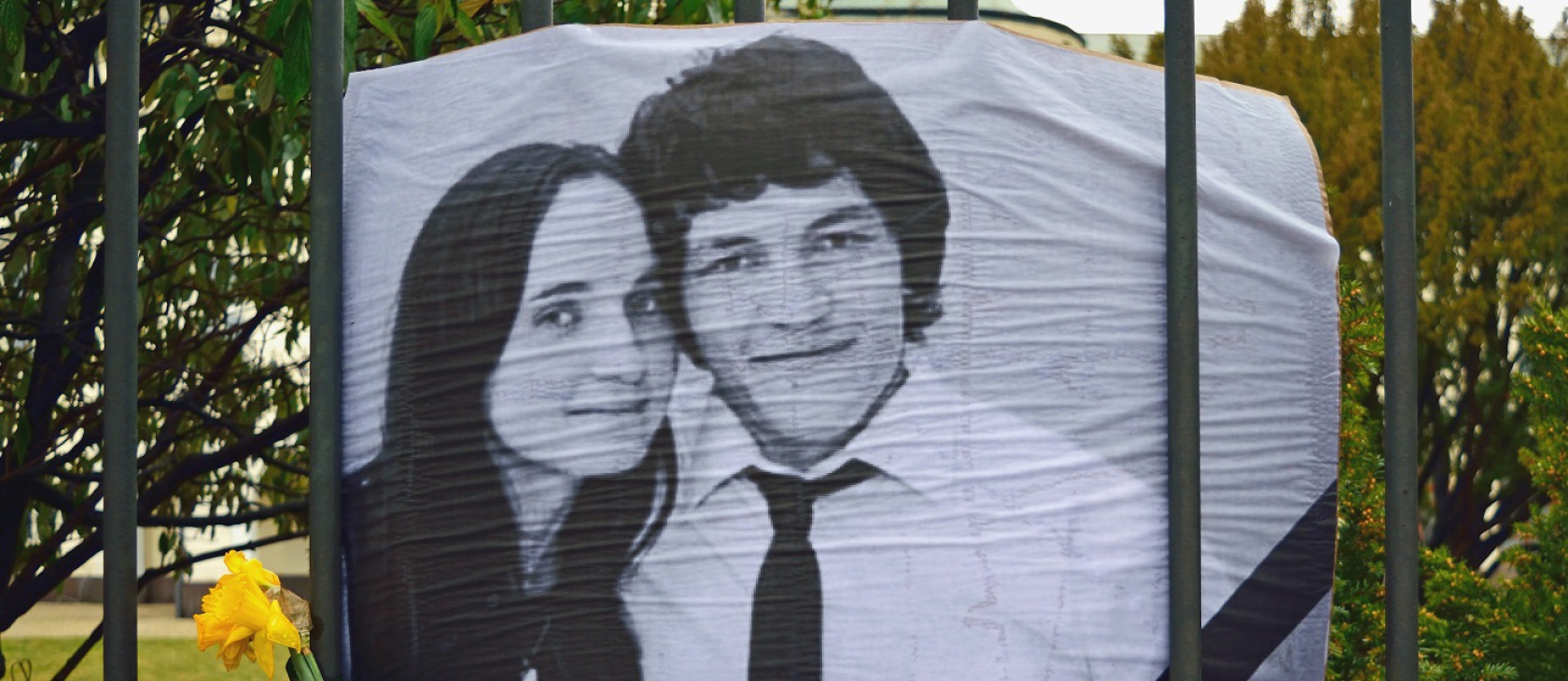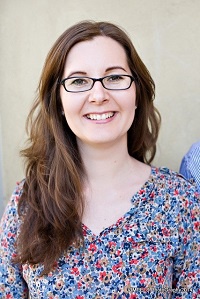Slovakia has been living through one of the most turbulent times in its young history. It has been almost a month since the murder of investigative journalist Ján Kuciak and his fiancée, Martina Kušnírová, which have put these events in motion. Much has changed in past four weeks – the nation went to the streets and the country experienced the biggest public protests since the Velvet Revolution in 1989. Robert Fico’s third term as prime minister has been brought to an unexpected end. The distribution of power among the political parties did not shift, but several important senior government officials – one of them a prime minister – stepped down or have been replaced.
Jan’s and Martina’s bodies were found on Sunday evening, February 26, in their home in a village 50 miles from the capital city of Bratislava. They were in the process of renovating their house, as they were to be married in May. They were only 27 years old. The news shocked the country, stirring up a strong emotional response and speculation about the assassin’s motive. Though the investigation is in its initial stages and there is as yet no official explanation, the connection to Jan’s journalistic work seems evident. The murder was immediately understood as an attack on the important role journalists play in a democratic society and the freedom of speech. No journalist has ever been the victim of such a horrific crime during Slovakia’s short, 25-year existence as an independent nation.
Jan’s article was released three days after he was found dead. It was an extensive report on business activities and influence of the ‘Ndrangheta, Calabria’s organized crime syndicate, and its connections to senior government officials close to Prime Minister Robert Fico. As Jan told one of his colleagues shortly before his death, but for a few details, his article was done. They both understood how serious Jan’s findings were and what implications they would have, including potential personal risk. Then, Jan told his supervisor that he had no fear. He acknowledged that he might be hurt, but he would never admit someone might go so far as to kill him.
The article – which was never published during Jan’s life – covered how individuals from families directly linked with the Calabrian mafia in southwest Italy (Antonino Vadala, and Diego and Antonio Roda) established their activities in a poverty-stricken eastern part of Slovakia to access government funding.
Three things were needed: start-up capital, the right specialization and, most importantly, the right government contacts.
Over the 14 years they have been in operation, they put everything in place. Antonino Vadala became known as a successful businessman in real estate, energy, and agriculture – the latter two heavily supported by money from EU structural funds. He started investing in Slovakia in the 1990s, with investment money tracked to Italian companies linked with his name. Vadala developed his contacts with the figures in central government – including through his attractive Slovak acquaintance, Mária Trošková, who then worked at the Ministry of Economy and later became his business partner. According to Ján Kuciak, Vadala’s other government contact was MP Viliam Jasaň, who already had some business dealings with him. Trošková later became Fico’s chief state adviser, which opened opportunities for her to accompany him to high-level meetings. Jasaň was appointed the head of the prime minister’s office and secretary of the State Security Council.
The same day these allegations were published, Fico told the media not to connect these specific names with the double homicide without first having evidence. He then refused any political responsibility, saying that Viliam Jasaň has the highest security clearance. Trošková and Jasaň stepped down willingly a day after denying any wrongdoing and saying they do not want their names to be used in political fight against the prime minister. It was later found out that Trošková had no background security check at all – which was in itself shocking, as she attended Fico’s meeting with the German Chancellor Angela Merkel in spite of a diplomatic pushback from both German and Slovak diplomatic circles.
It was this statement and Fico’s reluctance to immediately dismiss the officials suspected to have connections with the Calabrian mafia that sparked mass public protests all over the country. Since Fico has a history of unresolved, high-level corruption cases reaching the very top floors of political establishment (including Gorilla and Bašternák) during his three terms as a prime minister – where investigations brought no results or have been dragging for years and no political or personal responsibility was taken – Fico signaled that he would take the same approach to this murder. A snap police statement that “the offence did not happen” has become the mock motto of his political maneuvering. This time, the public was agitated and appalled and would not allow the proper investigation of this murder to be thwarted.
Whoever pulled the trigger, the real culprit was massive corruption and cronyism fueled by government funding.
On Friday, March 2, Peter Nagy, Jan’s personal acquaintance, and others organized public gatherings across the country for citizens to pay their respects to Ján and Martina – and to show their discontent with the current situation in Slovakia, in which such a horrible act can even take place. Up to 50,000 people took to the streets all over the country, and abroad, to commemorate Jan and Martina’s lives; organizers made every effort to make sure that these gatherings are not exploited for political purposes.
The situation in Slovak politics grew more tense with every passing day. In a special broadcast almost a week after the murder made news, President Andrej Kiska stepped in, publicly asking the prime minister to carry out “a thorough reconstruction of the government or call snap elections.” Fico flatly dismissed both of these demands. Instead, Fico said that the president’s speech had been written abroad, at the urging of vested foreign interests trying to overthrow the government, mentioning the president’s private meeting with George Soros last September and calling on him to disclose the details of that meeting.
Responding to the development on the political scene, the organizers of the rallies decided to organize further mass protests on March 9, this time under the motto “Stand up for a decent Slovakia.” The deans of some universities cancelled classes for the day so that students could take part. An estimated 100,000 people protested in 20 towns all over this country of five million, making these protests possibly the largest demonstrations in Slovakia since the 1989 Velvet Revolution.
Such a loud cry from the street could not possibly fall on the deaf ears of politicians. Two days later, one of the coalition partners in the government, a Slovak-Hungarian party Most-Híd, announced they demanded early elections, turning up the pressure on the prime minister. On March 12, Interior Minister Robert Kaliňák stepped down to “stabilize the situation in the country.” In the meanwhile, international investigators unveiled new allegations about connections between members of Fico’s governing party, Smer, and the Calabrian mafia.
The protest organizers announced yet another protest on March 16, sending the message that Kaliňák’s resignation must only be a start. Corruption must be eradicated, and there must be no connections between government and organized crime.
Despite Kaliňák’s resignation, Most-Híd maintained its demand for early elections until March 14, when the party made an unexpected U-turn, agreeing to government reconstruction. The leaders of the coalition parties – Béla Bugár of Most-Híd, Andrej Danko of the Slovak National Party, and Fico – held a joint news conference where Fico announced he was willing to resign under three conditions: The prime minister post must stay with his leading Smer party, the president will respect the existing coalition agreement, and there will be no early elections. The president responded that, according to the Slovak Constitution, the prime minister’s resignation is to be handed to the president without any conditions. Most-Híd’s Minister of Justice Lucia Žitňanská resigned in reaction to the news conference.
The protests, though smaller in number, continue under the slogan “For a decent Slovakia.”
Prime Minister Fico delivered his resignation to the president on March 15 but, reportedly, reassured the president that he had no intention of going anywhere. The new prime minister, Peter Pellegrini (the former deputy prime minister for investments and information), was appointed to form a new cabinet. Antonino Vadala was arrested in the eastern Slovakia for allegedly attempting to create a new cocaine import route from South America.
Public protests continue around the country, drawing tens of thousands of people. The Ministry of Agriculture and Agricultural Paying Agency have revealed that, since 2004, companies owned by Vadala and Roda received around €68 million ($83 million U.S.) in taxpayer-funded agricultural subsidies.
Pellegrini presented a new list of ministers to the president who, after some wrangling, appointed the cabinet. On Monday, March 26, the new government received parliamentary approval.
The opposition, which has called for early elections from the start of this deep political crisis, has now come with a plan to organize a referendum for early elections in September. However, many are skeptical about snap elections, pointing to a weak and deeply divided opposition that struggles to offer a single strong leader.
The protests, though smaller in number, continue under the slogan “For a decent Slovakia.” Although the murder is being investigated by the largest international team of criminal experts in Slovak history, no charges have been filed as of this writing.
Whoever pulled the trigger, the real culprit was massive corruption and cronyism fueled by government funding. The people of Slovakia demand that this situation must change.




